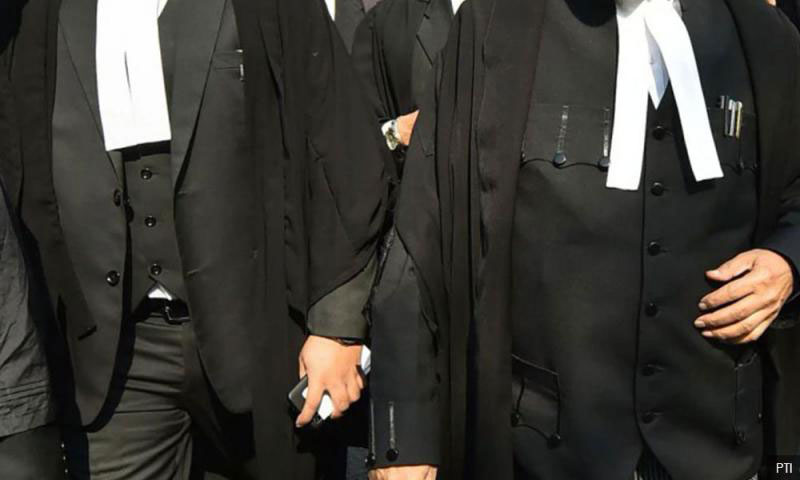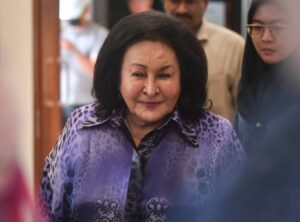By S. Vinothaa | Malaysiakini

The Kuala Lumpur Bar Committee will resume its efforts to push for a standard professional examination for all law degree holders before they commence their chambering in Malaysia.
Its chairperson Vivekananda Sukumaran said the Kuala Lumpur Bar received about 30 to 40 pupils being admitted to the roll every month. However, the Bar Committee was receiving reports of a decline in the quality of new entrants.
Responding to a Malaysiakini report on a law graduate’s last attempt at clearing the certificate of legal practice (CLP), Sukumaran said he would push for the Common Bar Course (CBC) for all entrants.
The course, he said, would be compulsory for graduates from local private and public universities and those from overseas.
He said while the CLP acted as a good sieve to maintain a certain standard in the profession, the tests placed on entrants into the profession, however, were not uniform across the board.
Sukumaran said there existed a growing perception among employers that a decline in that standard of lawyers came largely from local public and private universities.
“We have heard of cases where lawyers entering the profession were unable to string a sentence in English together.
“Students from public universities like Universiti Teknologi Mara, for example, paid a total of about RM5,000 for a full degree and were exempt from the CLP.
“They are not necessarily tested at the same standards as the CLP graduates,” he explained.
Elaborating, Sukumaran said the Malaysian Bar, through its president, took up a seat in the Legal Profession Qualifying Board (LPQB).
“And as a main stakeholder to the legal industry, the Bar must look into why the Common Bar Exam for all entrants was not implemented,” he said.
Capping on attempts unfair
It was reported that last year, the LPQB had granted one additional attempt to students who had failed more than one paper and exhausted all four attempts.
However, the same consideration was not afforded to those who failed only one paper and had exhausted all three attempts.
In a Malaysiakini report yesterday, a 33-year-old working student who had failed one paper was appealing to be given the same consideration for an additional attempt.
At the risk of sounding unsympathetic, a KL lawyer who didn’t want to be named said there was a cap on the number of attempts for almost any professional paper.
“There has always been a limit, but I agree that in this student’s case, the LPQB was unfair to him when they granted an additional attempt to other students who failed multiple papers,” he said.
The lawyer, who has been practising law for 25 years, agreed with the need to have a common bar examination and said the local universities were among the biggest obstacles to its implementation.
Kee Hui Yee, who completed the CLP in 2018 as a working student, also agreed that the CBC should replace the CLP.
“Because the CBC was meant to be a single entry for all law graduates, regardless of whether you are from local universities or overseas.
“I agree that capping the number of attempts to sit for the exam is unfair.
“CLP is a professional paper, and most students have to work and study at the same time,” explained the civil litigation lawyer.
She said the issue with CLP was a bigger one as the entire system was not transparent and the LPQB held too much power.
Giving an example, she said candidates did not get the full details of the score of their exam papers and those who were dissatisfied with their grades could only retake the exam.
“During the pandemic year, the exam was postponed for more than a year because LPQB said it was impossible to hold a physical exam.
“Even the announcement of results from the previous year was postponed with no clear direction from the board,” she said.
CLP’s voluminous syllabuses cramped into nine months
A general litigation lawyer who wanted to be known only as Chan said the CLP exam no longer enhanced education or raised the level of quality.
Chan, who has been practising since 2016, said CLP appeared to be designated to fail foreign graduates.
She said the common problem was that the syllabuses were voluminous and packed into less than nine months of classes.
This was taxing for overseas degree holders because they had been learning about the UK or Australia’s land law for three to four years, she explained.
“They also have to relearn all the relevant provisions and local case law in under nine months when they come back to Malaysia.
“Now multiply that scenario to company law, wills and probate, criminal procedure, a civil procedure, to name a few, but all within nine months of study.
“More time ought to be given to students or more flexibility where they have more time to complete their four attempts and not in four consecutive exam years like it is now,” she said.
Joshua Tay, who was called to the Bar in 2013, was very clear that there was a need for a CBC.
“Doesn’t matter where you graduate from, anyone who wants to practice law has to sit for the same exam.
“I think the problem lies in the fact that there is no standardised exam for law graduates seeking to enter the legal profession.
“This is a problem because there is no common benchmark as different criteria were used by different institutions to assess students before they become qualified lawyers,” he explained.



